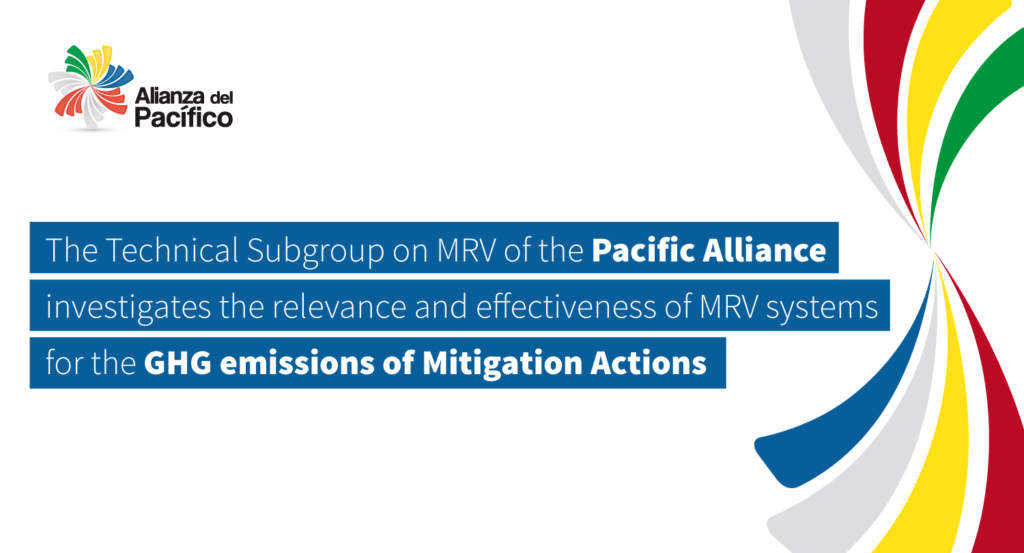The SGT-MRV launches a synthesis report analyzing the challenges and opportunities of MRV systems for mitigation actions in the countries of the Pacific Alliance.
October 22, 2020. The increasing ambition to reduce greenhouse gas (GHG) emissions (Lima, 2019), the implementation of multilateral initiatives to combat climate change (Puerto Vallarta, 2018) and the strengthening of measurement, reporting and verification systems (MRV) for mitigation actions (Cali, 2017) are part of the commitments made explicit by the countries of the Pacific Alliance (PA).
The Technical Subgroup on MRV and Climate Change (SGT-MRV) of the PA, supported by Environment and Climate Change Canada (ECCC), carried out baseline studies to analyze MRV systems for mitigation actions in Chile, Colombia and Perú (forthcoming for Mexico). With these studies as input, this synthesis report highlights the relevance and effectiveness of the MRV of mitigation actions in the PA countries.
The report reveals key elements to continue advancing the harmonization and effectiveness of the MRV of mitigation actions:
-
National MRV systems for mitigation actions are in different stages of development and operation. All of them facing the challenges of being sufficiently operational, relevant and effective for inter-sectoral decision making at the national level. Its maturation toward greater effectiveness will depend on the strength of cross-institutional collaborations.
-
National reports show the materialization of significant ambitions that are producing systemic change and the MRV of mitigation actions is on a solid trajectory towards a more effective configuration of equitable and low-carbon development policies and infrastructure investments.
-
The increasing interest and demand for MRV systems continues to grow beyond their preliminary justification of complying with reporting obligations to multilateral environmental conventions. The experience of the PA countries has important value for other regional climate collaborations.
Regionally, the SGT-MRV continues to promote the exchange of knowledge and experiences while strengthening capacities at the national level to advance the creation and implementation of more effective climate policies.

